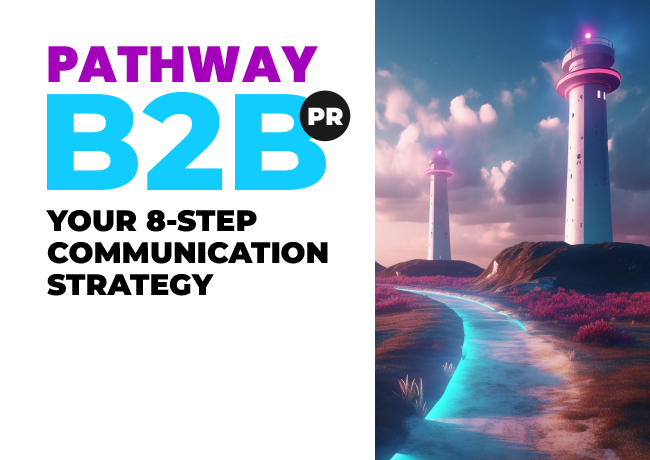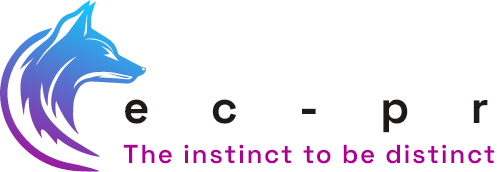
Mastering the art of investor communication: a strategic guide
How to win over investors: your communication playbook
Discover how to communicate effectively with investors and successfully secure funding. We guide you through:
- mastering business fundamentals to build investor confidence
- crafting a value propostion to present to investors
- demonstrating your business is ready for grown with strategically timed funding rounds
- delivering a consistent and compelling message by unifying your team with a single story
- winning investor confidence beyond the pitch desk
You’ve built an incredible tech product. Your code is elegant, your interface is intuitive, and your solution solves a genuine problem. Effective investor communication is the next step needed to transform your innotavite tech product into a funded success.
Here’s the stark truth: if you cannot communicate your vision to investors effectively none of the other stuff matters. Whilst founders obsess over product perfection, they often overlook the make-or-break skill of articulating why their solution deserves funding. Let’s sort that.
Investor communication starts with mastering business fundamentals
Picture this: you’re mid-pitch, and an investor asks about your customer acquisition costs. You freeze. Despite knowing every line of your codebase, this fundamental business metric escapes you.
It’s a scene that plays out far too often in investor meetings. If you’ve ever watched Dragon’s Den, you’ll know that before stepping into any investor meeting, you need to master the fundamentals that truly matter to investors. While you might be proud of your elegant code or innovative features, investors are looking for concrete business metrics.
Before you step into any investor meeting, master these essential elements

Your precise product offering and revenue model

Your competitive edge (beyond mere features)

Customer acquisition and retention strategies

Customer lifetime value calculations

Your scaling roadmap

Key performance metrics
Craft a value proposition that captures investor attention
Your value proposition isn’t just another box to tick—it’s your business’s guiding star. It should answer three critical questions:
1What unique value do you deliver?
2 Who precisely needs this value?
3 Why should they choose you over alternatives?
Top tip
Test your value proposition with actual customers before presenting it to investors. Their feedback will help you refine your message until it strikes home.
Time your funding rounds strategically to attract investors
Series A and B funding rounds aren’t just about securing capital—they’re about proving your business is ready for serious growth. Each round tells its own story.
Series A focus:
Demonstrate clear product-market fit
Show early adoption metrics
Present market validation data
Outline expansion potential
Series B focus:
Highlight operational efficiency
Present detailed scaling plans
Showcase team growth strategy
Demonstrate Go-To-Market (GTM) success
When you reach series B, the conversation shifts to scalability. Investors want to see operational efficiency metrics, detailed market expansion plans, and a robust team scaling strategy. Show them how additional funding will accelerate your already-proven model.
Unite your team behind a single story
Successful investment communication isn’t a solo performance—it requires a synchronised effort from your entire leadership team. Each key player brings crucial insights to your investment narrative:
1Founder or business champion: your strategic vision keeper
Customer service lead: your voice of customer insight
Commercial lead: your market opportunity expert
Product development lead: your innovation storyteller
Marketing lead: your message orchestrator
Sales lead: your revenue growth narrator
But this harmony doesn’t happen by chance. Regular alignment sessions are crucial—think of them as your rehearsals. These meetings ensure everyone not only knows their part but understands how it fits into the greater symphony of your company’s narrative. When an investor asks questions during due diligence, they should hear the same confident melody, whether they’re talking to your technical director or your customer success manager.
Win investor confidence beyond the pitch desk
Securing investment requires more than just presenting facts—it demands building trust. This happens through a strategic approach to visibility and credibility:
Thought leadership. Position your company as an industry authority through:
Insightful industry analysis
Forward-thinking perspectives
Expert commentary on sector trends
Meaningful contributions to industry dialogue
Your communication strategy should be making waves even when you’re not in the room. Think of it as creating an echo chamber of credibility that resonates through your industry.
Start by establishing yourself as a thought leader—not through self-proclamation, but through meaningful contribution to industry dialogue.
Write articles that challenge conventional wisdom, speak at conferences where you offer fresh perspectives, and engage in industry debates that showcase your unique insights.
Strategic partnerships. Leverage collaborations to enhance credibility:
Showcase successful joint ventures
Highlight integration successes
Demonstrate market validation through partnerships
Strategic partnerships are perhaps your most powerful credibility builders. When established players in your industry choose to work with you, they’re lending you their reputation.
Showcase these collaborations not as mere logo-dropping exercises, but as strategic moves that validate your market position.
Whether it’s through technical integrations, joint market initiatives, or collaborative innovation projects, these partnerships should tell a story of your company’s growing influence and capability.
Media presence. Maintain consistent visibility through:
Targeted media opportunities
Industry publication engagement
Strategic digital presence
Success story showcases
Your media presence should feel less like marketing and more like natural authority. Build relationships with industry publications that matter to your sector. When they need expert commentary on industry trends, make sure you’re on their speed dial.
Maintain a social media presence that reflects your expertise—share thoughtful analyses of industry developments, celebrate your customers’ successes, and engage in meaningful discussions that demonstrate your deep understanding of your market.
The bottom line: why investor communication drives funding success
A stellar product alone won’t secure investment. Your communication strategy is the bridge between your technical excellence and investor confidence. By mastering these elements, you’re not just pitching a product—you’re presenting an irresistible investment opportunity.
Remember: the best technology doesn’t always win. The best-communicated technology does.

Your 8-Step Communication Strategy Guide
A comprehensive guide to delivering your business goals using intelligent and relevant messaging.

